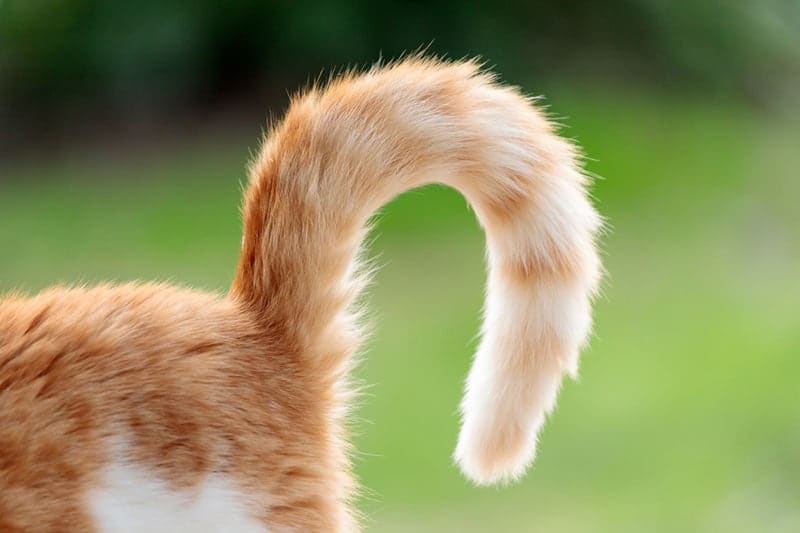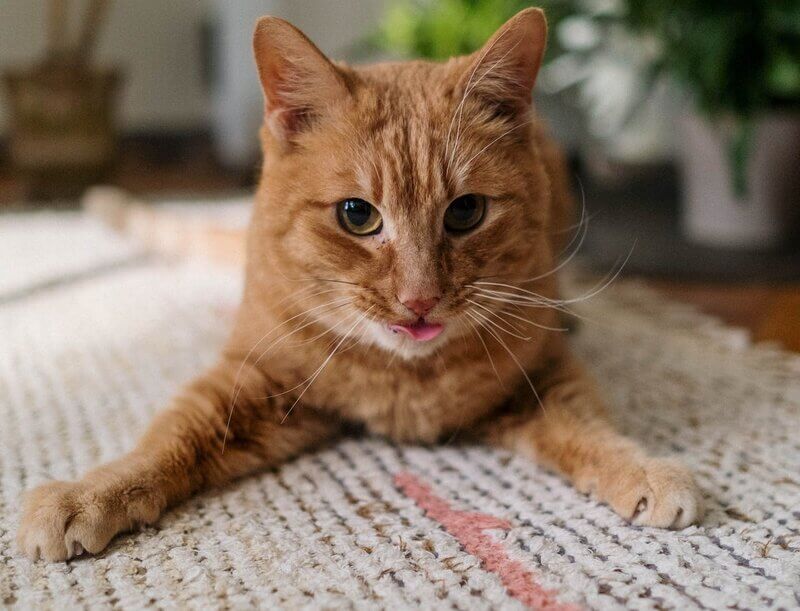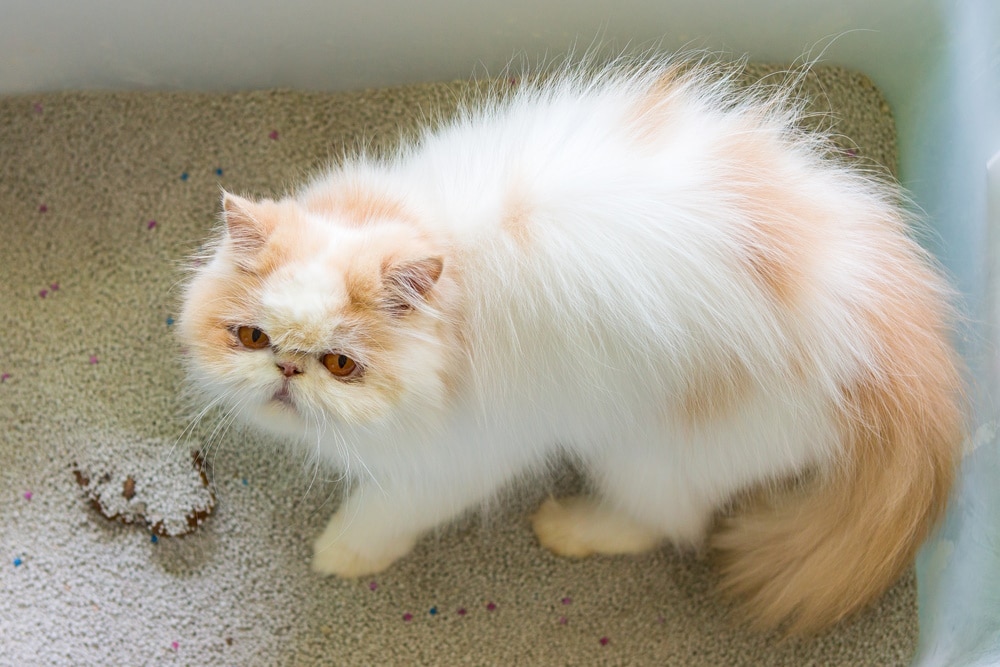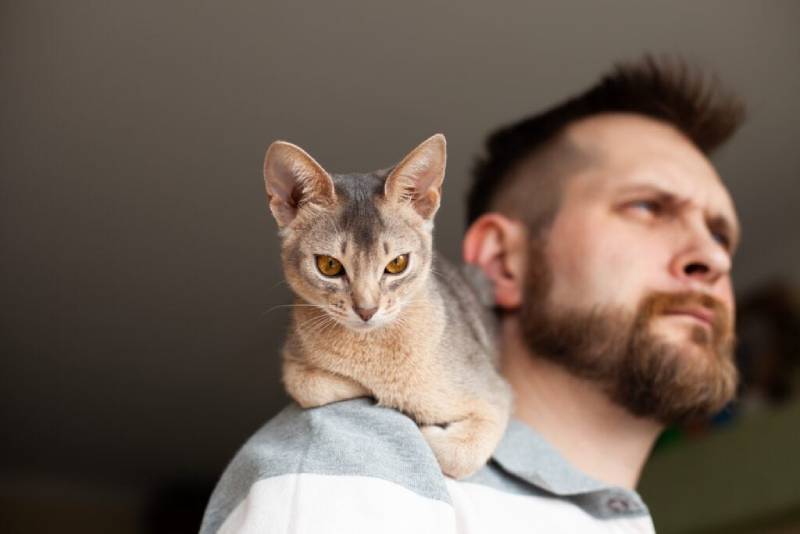Click to Skip Ahead
Felines can be quite vocal, making many different sounds to get our attention. However, their constant meows aren’t the only way that they can communicate with us. A feline’s tail is equally as expressive. Though we don’t know for sure what they’re tail is trying to tell us, we can extrapolate what they’re potentially saying based on the situation and other body language. Interestingly, wild species, even big cats, often have the same expressions and vocalizations. So, what are some common cat tail-wagging meanings? Let’s find out.
Positive Cat Tail Language
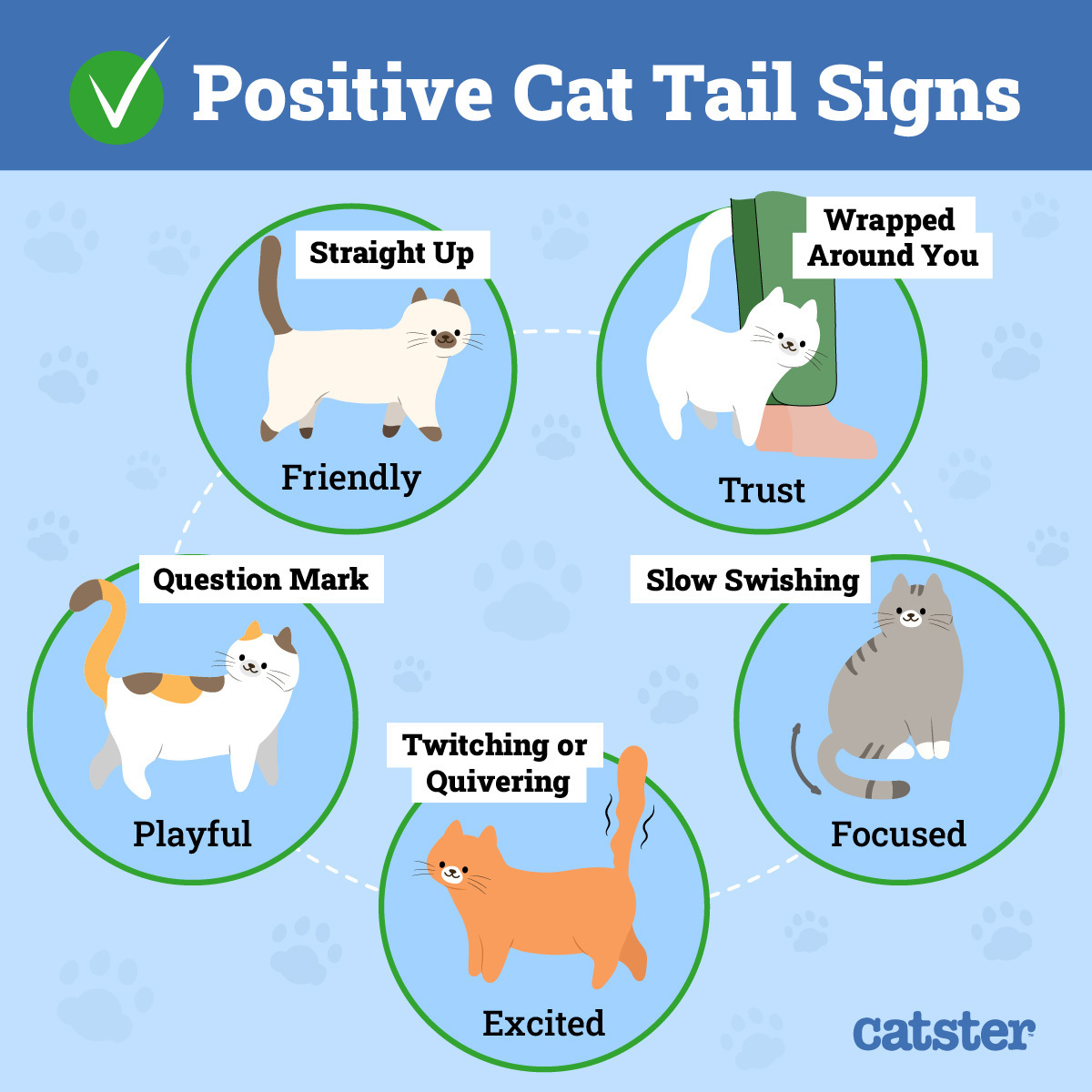
1. Straight Up
Hopefully, this one is a position you see most often with your kitty. Everything is all smiles when your cat’s tail is sticking straight up. This means your pet is friendly and open to interaction. Felines can use it when approaching humans or another, especially familiar, animal. It’s a receptive gesture that shows openness.
2. Wrapped Around You
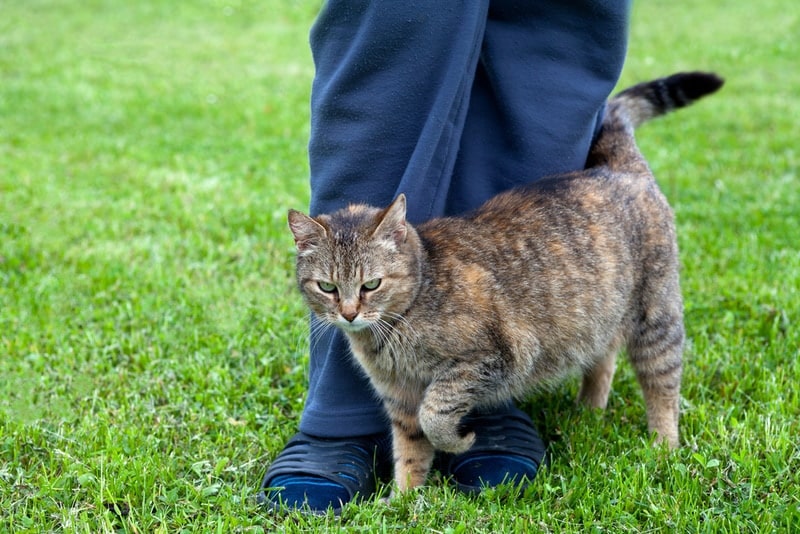
You can liken this body language to putting your arm around someone. Cats often engage in tactile communication, whether with their owners or other felines. It’s part of their bonding. So, if your kitty wraps their tail around you, they are probably showing trust and security.
3. Question Mark
A tail in the shape of a question mark is a gesture that is often a subject of cartoons and humorous musings about cats. The question mark isn’t about confusion but, instead, is an invitation to play or interact. Perhaps your kitty is also suggesting they’re open to whatever you want to do, kind of like a dealer’s choice.
4. Twitching or Quivering
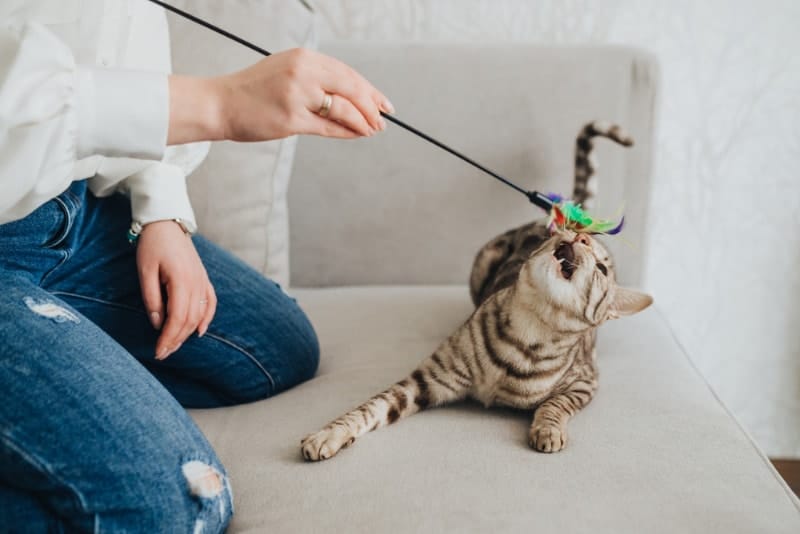
It’s hard not to deny the anticipation and excitement this tail position conveys. We like to think of it like a child jumping up and down when something good is about to happen. That’s how your cat likely sees it, too. If you see a cat tail lightly quivering, they are happy and ready for play or whatever love and attention you want to give them. They are so excited that they can hardly contain their emotions.
5. Slow Swishing
Our feline companions love to play, and anything can be a toy for many pets. For example, you might see a cat’s tail wagging or swishing when they are focused on something, like a toy or another animal. They may even be ready to pounce! This is good behavior, so let them enjoy the enrichment that they’re experiencing.
Negative Cat Tail Language
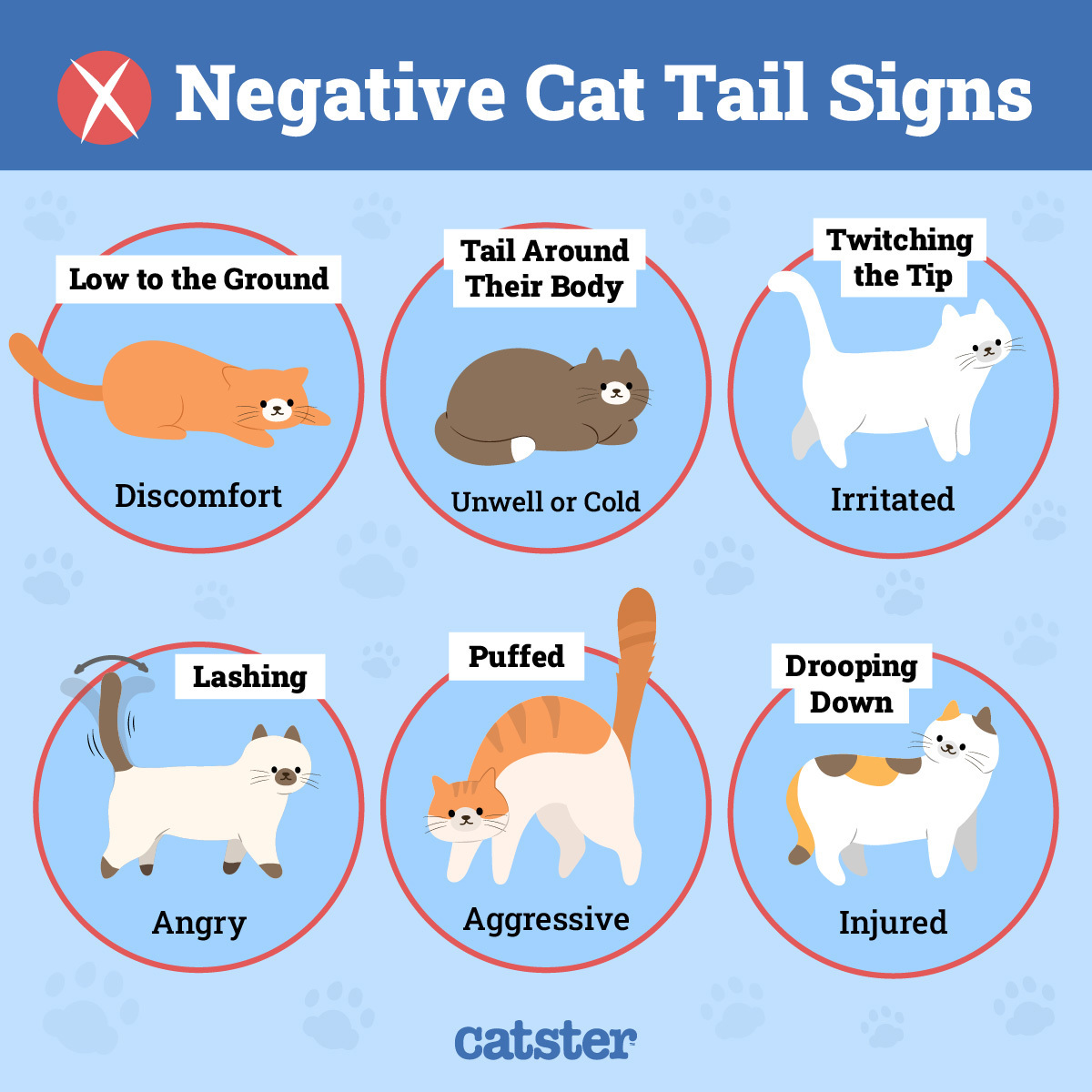
6. Low to the Ground
Cats may do an excellent job of hiding their pain. That is, until the discomfort becomes overwhelming. An animal sitting near the ground with their tail down is trying to keep a low profile. The kitty is vulnerable in their present state, and they know it. Avoiding detection often means survival for a cat. We recommend approaching a pet with this stance cautiously.
7. Tail Around Their Body
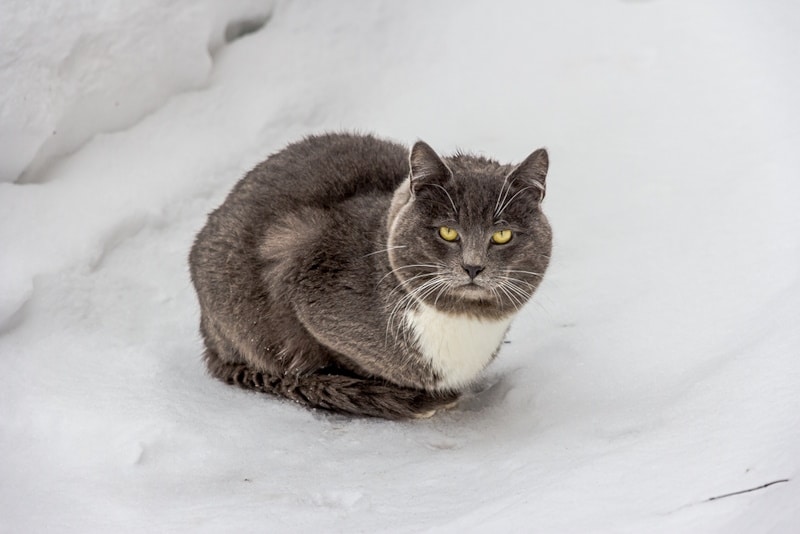
Some believe a cat’s tail wrapped around their own body has a comforting effect, most likely because they are feeling unwell or cold. If you see your cat crouched down like this often, then it’s probably time to assess their environment or get them checked out by a vet.
8. Twitching the Tip
We think of this gesture as if a cat could tap their fingers on a table sitting opposite us. They are obviously annoyed by something we said or did. This cat tail sign is an early warning to watch your step. They’re irritated, but not enough to act. Felines often signal their displeasure with plenty of clues, so pay attention when you see a cat tail twitching at the tip. Don’t say they (and we) didn’t warn you!
9. Lashing
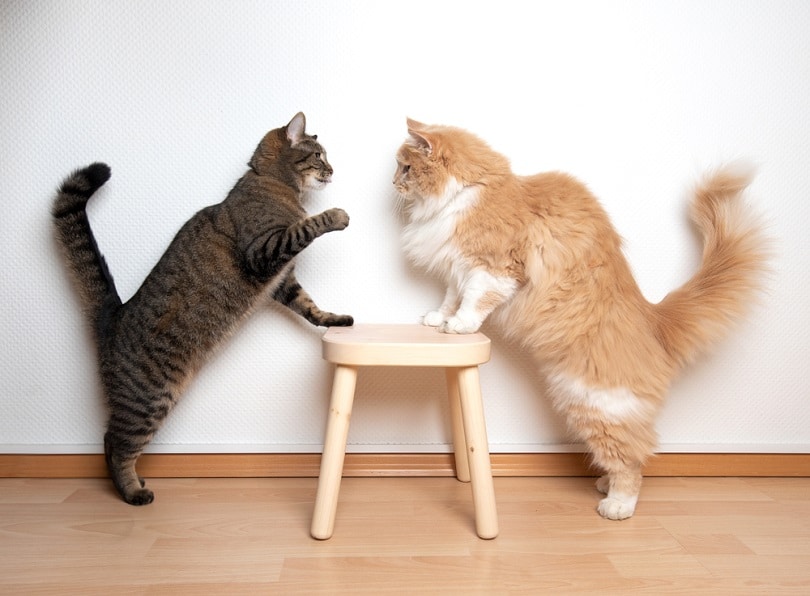
Cats lashing their tails means your cat is really ticked off about something and is making their feelings known. Something really bad has to happen for a feline to act without a warning. There’s often a lot of posturing, vocalizing, and tail lashing before claws come out and fur flies. It’s probably best to leave your cat alone in this scenario.
10. Puffed
A puffed-out tail, often two or three times the size of a normal one, is either a sign of a very excited cat or one that is ready for a fight. A feline may also have hair raised on their back to make them appear larger and a more formidable opponent. It’s an indication of high emotions that can go either way.
11. Drooping Down
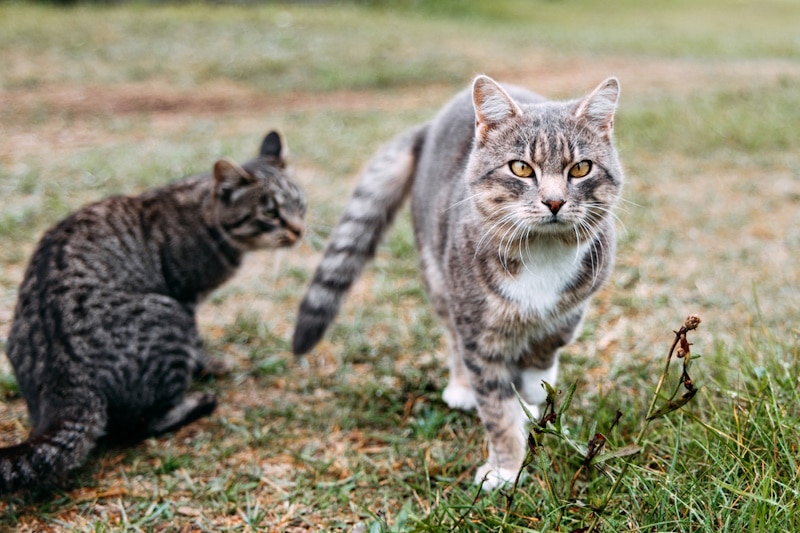
A drooping tail often indicates something is wrong. Felines have between 20 and 23 bones in their tails. This extension of their spine is vulnerable to injury. A cat holding it in an unnatural position may have fractured or otherwise injured it somehow. Other clues that something is wrong are often behavioral like an animal crying out or avoiding contact because of the pain.
Tips for Keeping the Peace
We like to see only the positive cat tail language. Who wants to make a pet upset? Felines typically genuinely love their human companions. They show it in many ways, from kneading to purring to rubbing up against you. A common way to elicit negative tail positions is through overstimulation. Cats often like their interactions short and sweet. Crossing the line can lead to tail lashing before a friendly but pointed nip.
Of course, the temptation is to give your kitty a bear hug, but we suggest paying attention to your cat’s tail signs for warnings that they want you to stop. Your pet doesn’t want to bite you. However, you must read your cat’s body language to know when you’re crossing the line.

Conclusion
Cats are masters of non-vocal communication. The emotions they convey with their tails are excellent examples of this ability. It’s adaptive, and it helps them avoid detection by prey or predators to get their point across silently. It also helps them prevent physical conflicts, which ups the risk of injury or worse. Cat tail language is easy to read if you pay attention, so hopefully this article has helped you to understand what they’re trying to tell you.
Featured Image Credit: olivier.laurent.photos, Shutterstock

